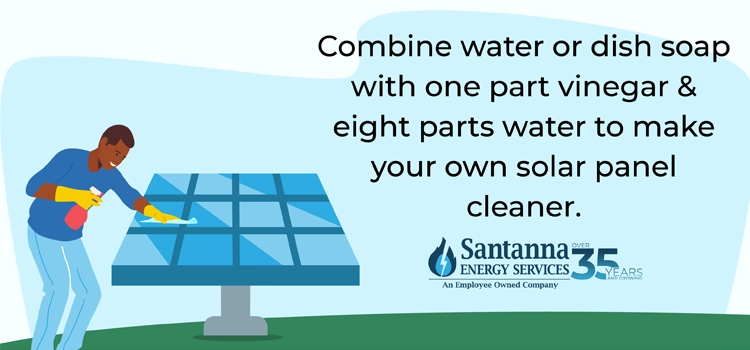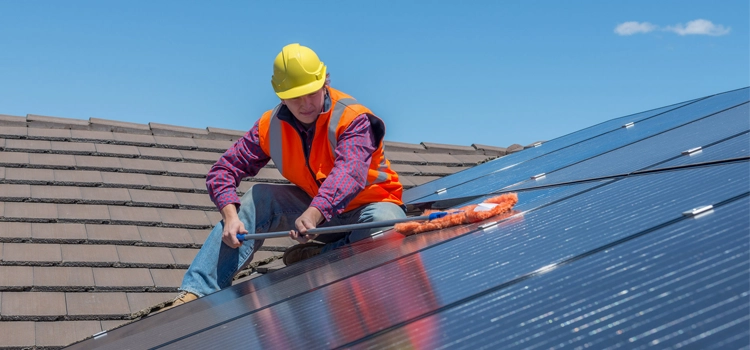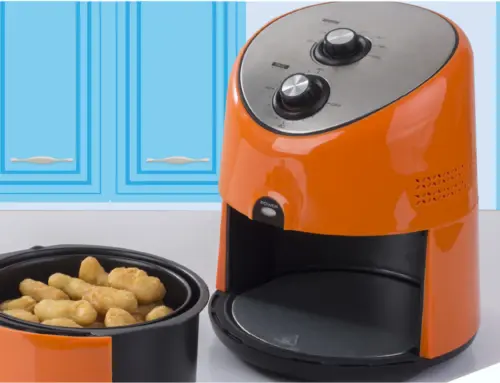Solar Panel Cleaning: DIY Options and Tips You Need to Know
by Tyler Castle
10.5 min read
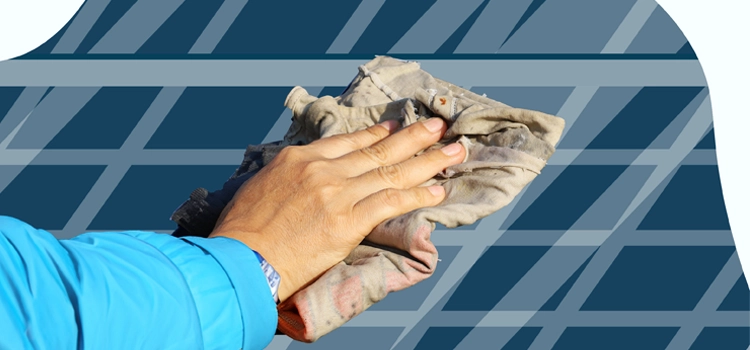
In 2020, 3.7% of U.S. single-family homes, including mobile homes, generated electricity from small-scale solar systems. This means that more than 2 million homes in the U.S. have installed solar PV installations. You should know how and when to clean solar panels when using solar power. As more solar panels are being used in the country, understanding their maintenance is crucial.
If you are considering using solar power, it is important to know how to properly clean the panels. Knowing the proper cleaning methods and schedule is essential for maximizing the efficiency of solar panels. We’ll delve into the essential aspects of maintaining your solar energy system with a few tips on how to do it yourself. Let’s dive in:
Do solar panels need to be cleaned?
Solar panel designs are designed to withstand various environmental conditions. But like anything else designed to reside outside, solar panels can’t avoid dirt and grime and require regular cleaning.
Accumulating dirt and dust can reduce the efficiency of your solar panels. Energy.gov reports that losses of 10 percent of solar panel efficiency aren’t uncommon because of dirt. Built-up sludge on your solar panels blocks out sunlight from reaching the photovoltaic cells.
How often should solar panels be cleaned?
A good rule of thumb for how often you should clean your solar panels is twice a month. Especially if you live in a region where you experience all four seasons. It won’t be the end of the world if you don’t stick to this rule for cleaning your solar panels. But if you notice a decrease in your energy efficiency, it’s a good sign you need to clean your solar panels.
Depending on how many solar panels you have, this process should only take you about 1-2 hours.
How to gauge when your panels need to be cleaned
Monitoring the performance of your solar panels is key to determining when cleaning is necessary. Here are a few signs that might indicate you need to clean your panels:
- If you notice a decrease in energy production or efficiency: Monitor your solar panel system’s energy output over time. A noticeable drop in output or even higher energy bills can mean you have dirty panels.
- Visual inspection: Visual signs of buildup can suggest that cleaning is necessary. Keep a close eye on dust and debris build-up on the surface of your solar panels.
- Weather conditions: If you live in a region where seasonal changes are frequent, factors such as heavy rainfall, dust storms, and pollen can dirty your panels.
- Tilt angle: The tilt angle of your solar panels can influence the rate at which they accumulate dirt and debris. Panels installed at a steeper angle may be less prone to buildup.
Do I need to turn off my solar panels to clean them?
Yes. Before you begin cleaning your solar panels, you should always turn off your solar power system in full.
A common mistake those who have solar panels make is only turning off the inverter on their mechanisms. To turn off your solar panels, follow the instructions for your specific model. It’s crucial to ensure the system is completely shut off before cleaning. Cleaning a system that is still functioning can pose the risk of electrical shock.
Tools and materials you’ll need
When preparing to clean your solar panels, having the right tools is essential to ensure effective and safe maintenance. Firstly, invest in a set of specialized solar panel cleaning tools designed specifically for this task. Here’s our ultimate list of tools you’ll need for a job well done:
What You’ll Need to Clean Your Solar Panels
|
Soft-bristled brush Squeegee Extension pole your brush can fit on Soft cloth or microfiber Harness if you’re working on a roof |
Work gloves Protective eyewear Hard hat Bucket Water Hose |
If you have most of these materials handy, you’re already on the right track! If you’re buying some of these materials to clean your panels for the first time, you’re looking at a tab of $50 to $100.
Cleaning kits
If you’re looking for a more centralized place for your cleaning needs, there are solar panel cleaning kits available. Complete with brushes, towels, and poles, these solar panel cleaning kits are convenient and portable.
Cleaning solutions
When cleaning your solar panels, using the appropriate soap solution is vital for effective maintenance. For a DIY approach, consider mixing dish soap with water or combining one part vinegar with eight parts water to make your own solar panel cleaner. Homemade solutions offer gentle yet efficient cleaning without risking damage to your panels.
If you don’t want to clean solar panels yourself, you can buy commercial solar panel cleaner soap from most major retail stores.
Safety considerations
Before you start your cleaning process, here are a couple of safety considerations you should consider:
- Consider if you should DIY or have professionals clean your rooftop panels: If you choose to clean your rooftop solar panels, you’ll need extra equipment. Materials like a ladder, safety harness, and cables are essential to a safe experience.
- Wear appropriate protective gear: Put on work gloves, safety glasses, and a hard hat to protect yourself from potential hazards.
- Be cautious of hot surfaces: Solar panels can become hot during the day and in certain regions. Especially in direct sunlight. Exercise caution to avoid burns when handling or cleaning them.
- Stay hydrated: Working outdoors in the sun can lead to dehydration, so drink plenty of water and take regular breaks to rest and rehydrate.
- Be mindful of surroundings: Be aware of your surroundings and avoid working near power lines or other electrical hazards.
- Consider hiring a professional: If you’re unsure about safely cleaning your solar panels or if they are difficult to access, consider hiring a professional solar panel cleaning service.
- Turn off your solar panels: To avoid electrical shock, as a safety, turn off your solar panels.
How to clean your solar panels yourself
Cleaning your solar panels isn’t difficult with the right tools and tips in your pocket! Before you begin, be sure to consider safety first. If you have rooftop solar panels, make sure you have proper safety equipment like a harness and hard hat to avoid injury. Regardless of where your solar panels sit, here’s how you can clean your panels yourself:
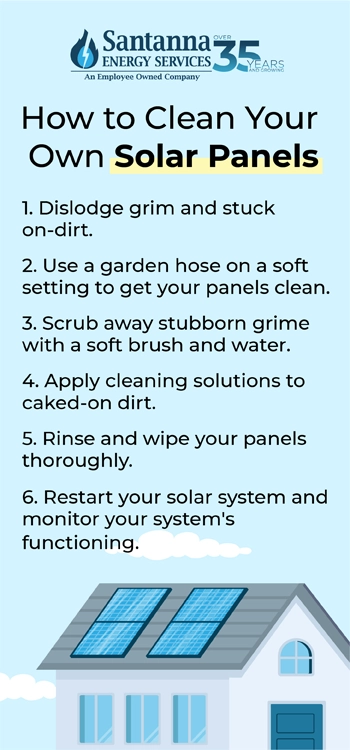
1. Dislodge grim and stuck on dirt
To start, grab a small soft brush and start scrubbing the grooves of your solar panels to release hard-to-reach grime from your dirty solar panels. This step is essential for ensuring thorough cleaning and will help your water stream in step two flow more efficiently.
2. Use a garden hose on a soft setting to get your panels clean
Begin by spraying the panels with water, starting from the top and working your way down to ensure full coverage. The soft setting on the garden hose provides adequate pressure to remove dirt you might have missed. If you have an attachment on your water hose, use the “mist” setting to minimize the risk of scratching or harming the panels.
3. Scrub away stubborn grime with a soft brush and water
Use a solar panel cleaning brush or any soft-bristled brush to gently scrub the surface of your panels to remove any remaining dirt or residue. Use a soft brush to avoid scratching or damaging the delicate glass surface of the panels. Harsh scrubbing or using abrasive materials can compromise the integrity of the panels and reduce their efficiency over time.
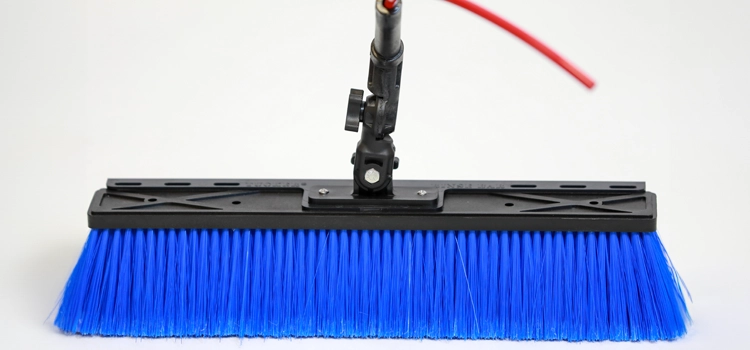 4. Apply cleaning solutions to caked-on dirt
4. Apply cleaning solutions to caked-on dirt
For particularly stubborn waste, this is where you can apply your homemade or store-bought solar panel cleaning solutions. Carefully apply the cleaning solution to the affected areas using a soft cloth or sponge. Ensure that there is even coverage across the surface of the panels. Allow the solution to sit for a few minutes to penetrate and loosen the dirt before gently scrubbing with a soft brush.
5. Rinse and wipe your panels thoroughly
Once you’ve scrubbed off the hard-to-get dirt, give your panels one last rinse, and be sure to still use a soft setting on your water hose so you don’t scratch your panels. Rinse your panels for about 1-2 minutes to ensure your cleaning solution and any lingering dirt is washed away. Lastly, using a soft microfiber cloth, gently wipe your panels dry of any extra hydration.
6. Restart your solar system and monitor your system’s functioning
After completing the cleaning process, it’s essential to restart your solar system to ensure everything is operating smoothly. Once the panels are clean and free from dirt and debris, reconnect any disconnected cables or components and switch your solar system back on. The process of restarting your system will vary based on your model.
Take note of any changes in energy production or performance, as clean panels should lead to improved efficiency and output.
What NOT to do
While cleaning your solar panels is a relatively straightforward process, here are a couple things to remember as you clean:
- Avoid using abrasive brushes, scouring pads, or harsh cleaning solutions as this can damage your panels.
- Avoid cleaning solar panels during extreme weather conditions such as high winds, rain, or intense sunlight. These conditions can pose safety risks.
- Avoid using high-pressure water sprays or pressure washers, as they can damage the delicate photovoltaic cells.
- Never step or walk directly on the surface of the solar panels, as this can cause cracks or damage,
- Avoid cleaning solar panels during peak energy production times. This can interrupt the system’s operation and reduce energy output.
When should I call professionals?
If your solar panels are difficult to access or located on a steeply pitched roof, it’s safer to leave the cleaning to the professionals with specialized equipment. If you’re not sure about your solar panels’ condition or see cracks, call professionals for an inspection and maintenance.
Professionals can also provide specialized cleaning services using industry-standard equipment and techniques to ensure optimal performance and longevity of your solar energy system.
How much does professional solar panel cleaning cost?
A professional solar panel cleaning will vary based on your location and the amount of solar panels you have. According to HomeAdvisor, the typical cost of solar panel cleaning is around $15 to $25 per panel. On average, a typical household needs 17 to 21 solar panels which means at this price, you can expect to pay around $400 before taxes and fees.
Keep in mind some companies might charge extra if your cleaning involves rooftop solar energy panels.
Automated cleaning systems
If you find yourself consistently washing your solar panels, it might be a good idea to invest in automated solar panel cleaning machines.
Newly on the scene, MIT researchers have been working on waterless cleaning systems that aim to conserve water. The new system uses electrostatic repulsion to cause dust particles to detach and virtually leap off the panel’s surface, without the need for water or brushes.
As another solution, some companies offer opportunities to control your panel cleaning from your phone with mobile apps. Most commonly of all, there are robotic options for cleaning your panels that are fast and lightweight.
More helpful tips for solar panel cleaning and maintenance
- Clean your solar panels early in the morning or late in the afternoon when they are cool to avoid streaking caused by rapid evaporation.
- Monitor your solar panels regularly for signs of dirt buildup and clean them as needed to maintain optimal performance.
- If in doubt, consult the manufacturer’s guidelines or hire professionals to ensure proper cleaning and maintenance of your solar panels.
- Check for any bird droppings or other animal waste regularly and clean them promptly to prevent damage.
- Create a cleaning schedule and stick to it to ensure regular maintenance and optimal performance.
- Utilize shading analysis tools or apps to identify areas of shading or obstruction on your solar panels.
Santanna Energy Services is a supplier of renewable energy solutions in the United States, providing services to Illinois, Indiana, Pennsylvania, Michigan, and Ohio. We provide a wide range of energy services and products to meet the needs of both residential and small business customers. Our mission is to provide innovative and cost-effective energy solutions that will help our customers achieve their energy goals. With over 35 years of experience, we are committed to creating life-long relationships by providing quality service to customers, communities, and employees.
Tyler is an experienced energy professional, having worked for Santanna Energy Services, for the past four years. He is passionate about renewable energy and believes that diversifying the energy grid is the key to a sustainable future. Tyler is dedicated to supplying consumers with the best possible energy solutions and works diligently to make sure that Santanna can deliver the highest quality service.


